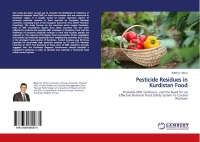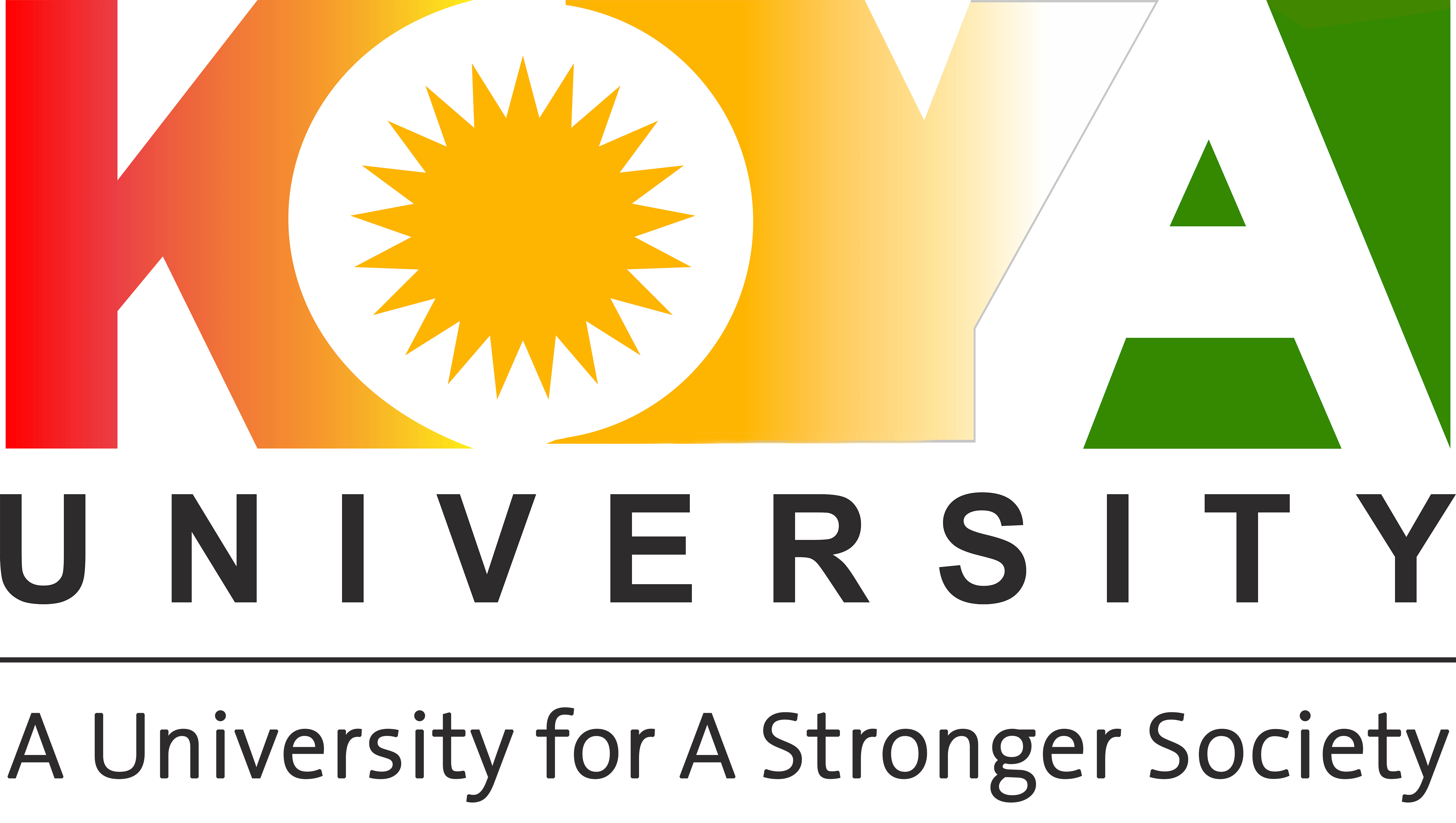Balen Dlawer Mirza is a researcher at the Workshop Unit in the Faculty of Engineering of Koya University. He has written a book entitled (Pesticide Residues in Kurdistan Food: Probable MRL Violations, and the Need for an Effective National Food Safety Systems to control Residus ), which will be published by the German Lambert Academic Publishing House. Concerning this, Balen says, "I have conducted my research at Greenwich University in Britain and it is the only research on food safety in Kurdistan. I have collected the data from some real portals of the European Countries.
The research is about an important subject of the present time and it has relation to the health of all the members of Kurdistan community; therefore, it will have a wide readership within the Kurdish community. In this interview, Balen talks about the purpose of conducting the research and its most important results, in addition to his suggestions and recommendations to deal with the state of food safety in Kurdistan Region.
Why Food Safety?
A question which keeps wandering in Balen's mind is: Are the different food items imported to Kurdistan Region healthy and safe for human consumption in terms of the amount of chemical residues they contain? Balen is doubtful about the answer. Concerning this, he says, '' Lack of care and attention to food safety and citizens' health in the region has led to an increase in life-threatening diseases like cancer and polio, which mainly result from exposure to chemicals and eating unhealthy food, in addition to environmental pollution. For Balen, these are the real reasons behind his research. At the same time, he considers it an academic and national duty.
The story doesn’t end here; he also reveals the most important results of the research and says, '' I can say that the results are quite frightening because all the fruits and vegetables of Kurdistan are brought from the neighbouring countries especially Turkey and Iran; however, annually hundreds of Consignments of fruit and vegetables are rejected at the borders of the European countries because of the large amount of the chemical pesticide residues they contain. In this research, I have included data showing the amount of food imported from Turkey to Kurdistan in comparison to data showing the amount of food from Turkey rejected at the borders of the European countries (those countries that have an active food inspection system). I am giving an example to the Newsletter's readers."
"We will take green pepper as an example. In 2012, about 13805 tons of pepper were imported from Turkey to Kurdistan. In the same year, thousands of tons of Turkish Pepper were rejected because they did not pass the tests of the border laboratories of Bulgaria, Britain, Cyprus, Hungary, Slovenia, Austria and some other countries. This means that the pepper contained a large proportion of unhealthy chemicals. The question here is: if Turkey sends foods with large proportions of Pesticide residues to the developed countries with high quality control systems, what type of food will they send to Kurdistan where the quality control system is not so effective and no tests are carried out at the borders for imported food. This is my main concern for conducting this research." Balen said.
Kurdistan is in need of an effective food safety management system
The risks of Pesticide Residues in foods pose real threats to health and health security of citizens in Kurdistan Region. As an urgent solution to this problem, Balen makes a number of suggestions saying, '' The main and important thing is that the authorities and businessmen must consider our country and its citizens as their own families and relatives and avoid importing bad goods especially bad foods for the sake of making financial profit. It is necessary that Kurdistan Quality Control take immediate procedures for building accredited laboratories at the borders to test imported food against chemical residues; It is also necessary to lay down specifications for importing food items and make sure that businessmen and food importing companies in Kurdistan have approved certificates. They must not import foods which contain high proportion of chemical residues that pose health risks.'' The results of his research have created a serious doubt in him so that Balen concludes, "My concern is not only about the food which is imported to Kurdistan Region and which we are not sure about whether it is safe or not, but it is also about the possibility of having imported the thousands of tons of the rejected food from the other countries, which we poor citizens daily eat not knowing that we pay money to buy poisonous food. ''
For the purpose of increasing awareness about the dangers of the Pesticide Residues inside food, the researcher has the intention to publish the book in Kurdish language also. ''In a near future I would like to publish the book in Kurdish also in order that every single person of Kurdistan will be aware of the foods they eat in terms of safety and the chemical residues they contain,'' Balen adds.
Lambert Academic Publishing/ Germany is a famous foundation in Germany that prints and publishes books. For more information click here.
The book is now available online. You can access it through this link. Click here.
About workshop Unit
Since opening the Manufacturing Department in 2013, Turning workshop has been opened then it became an independent unit in the Faculty of Engineering. Engineering students must learn about work safety at first, and then they acquire practical knowledge about all the tools and technologies and work to make those samples given in their course books. For more information click here.
- Name: Balen Dilawer Mirza
- Academic Title: Assistant Lecturer
- Special expertise: Food Safety and Quality Management
- Number of Published Books: 1 Book
- Work place: workshop Unit at Faculty of Engineering
- Subjects he teaches: Engineering Drawing + Turning
The Faculty of Engineering is one of the basic and most important faculties of Koya University. It has a high status within the academic structure of the University with seven specialized departments, which are: Architectural Engineering, Civil Engineering, Geotechnical Engineering, Oil Engineering, Chemical Engineering, Software Engineering and manufacturing Engineering. For more information about the Faculty, click here.

